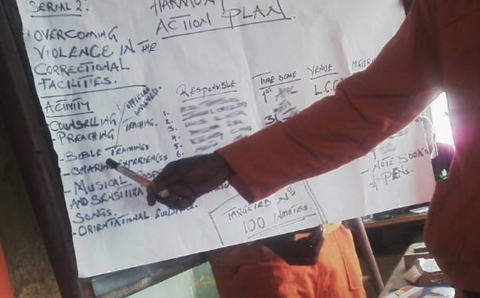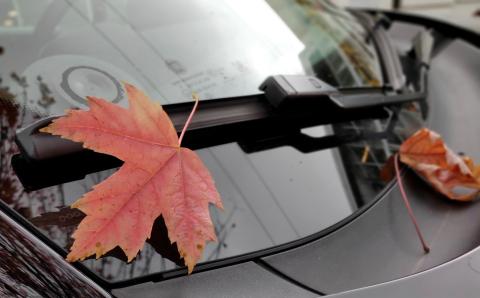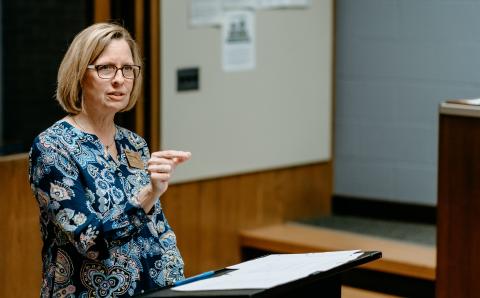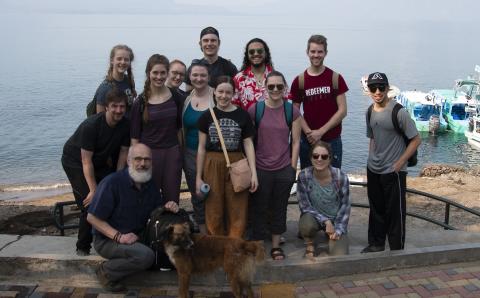Intellectual Pride
The point made in the editorial “Intellectual Pride” (June 2019) is well taken and important for the CRC to not get caught up in. However, I feel we are losing our intellectual robustness, as I seldom see confessions and catechism taught or recited within our services anymore. These are great faith-building resources that I hope we can utilize more and find the right balance of a humble, yet intellectual church.
Andrew Elgersma // Elora, Ont.
Healing the Sick
Calvin Theological Seminary student Luke Carrig believes the best comforting words we may offer the destitute, the sick, and the suffering is the Bible’s assurance that God knows exactly what they’re going through because in the person of Jesus “we have one who shared in our humanity and is able to empathize with our weaknesses” (“His Wounds,” July/August 2019).
However, Carrig fails to proclaim Christ’s compassion and willingness to heal all who turn to him in faith as documented in Scripture, saying, “When evening came, many who were demon-possessed were brought to him, and he drove out the spirits with a word and healed all the sick. This was to fulfill what was spoken through the prophet Isaiah: ‘He took up our infirmities and carried our diseases’” (Matt. 8:16-17). And Carrig could add, “Jesus Christ is the same yesterday and today and forever” (Heb. 13:8).
Joe A. Serge // Oshawa, Ont.
Civil Religion
There is a lot in this article that is commendable (“The Christian Religion and Civil Religion,” July/August 2019). I think (James D.) Bratt finds a nice balance, striking a blow against those who would say even reciting the Pledge of Allegiance is idolatry while also rightly challenging the idea that the U.S. has some sort of special biblical standing.
I do think Bratt misses an important opportunity, though—one that is particularly apropos in our current CRC climate. Bratt misses the opportunity to show the same type of balance he admired in Lincoln when Lincoln “put both sides in the Civil War beneath the righteous judgment of God.” Bratt squares up and swats down the nationalistic idolatry he believes is a besetting temptation for conservative Christians while whistling right past the idolatry of statism that many have observed is a besetting temptation for progressive Christians. Bratt is quick to point out how those with nationalistic tendencies misappropriate Scripture to apply passages directly to the U.S., but blithely overlooks the standard practice of progressives who rip Old Testament civil instructions out of the Bible to be shoehorned into U.S. immigration policy and the like. Examples abound, particularly in the academic and bureaucratic wing of the CRC.
I think Bratt's article would have been even more effective and enlightening if he had shown the willingness to take aim at the idolatries of both sides of the aisle.
Eric Van Dyken // online comment
As one whose citizenship straddles the 49th parallel and (who) has had the opportunity to teach history in Canada and the United States, I have long been interested in the differences between the cousins in their expressions of civil religion or, simply, patriotism (“The Christian Religion and Civil Religion”). I’m not aware of a Canadian John Winthrop or a corresponding “city on a hill.” Canadian patriotism of late seems very much tied to a celebration of diversity, and maybe even of being un-American. American patriotism is of a much different tenor, rooted in its sense of national purpose from times even well before 1776. This sense of destiny has been connected to innumerable good, noble, and world-changing events, but it has also been used to excuse much wickedness and has often caused us to forget our first and primary citizenship. It is for this latter reason that I get very uncomfortable with displays of a national flag on church grounds or in the sanctuary itself.
In keeping with the examples Bratt offers in his article, I would highly encourage readers to find Abraham Lincoln’s Thanksgiving Proclamation of October 1863. Notice how he describes the relationship between the American people and God. Ask yourself if you could imagine any modern president issuing such a proclamation.
Christian Altena // online comment
Bivocational Pastors
An additional advantage of bivocational pastoring is that it can lead to less dependence on the pastor (“Becoming a Denomination of Support for Bivocational Pastors,” July/August 2019) and perhaps offer more opportunity for lay ministry—not a church of people coming to hear a good sermon for their own sake, or of bystanders watching as the pastor does the work of ministry, but a pastor/shepherd equipping the church to do ministry together among the community and in the wider community where the church is located.
Bonnie Nicholas // online comment
Response to the July/August Issue
The July/August 2019 Banner arrived two nights ago. This may be the issue I most look forward to each year, the one reporting on your annual synod. I have had a healthy interest in the issues and decisions of the past synods. One of particular interest is your endeavor to express a biblical view of human sexuality. That is an issue of great importance in prison. I, myself, have had to counsel inmates who are transgender, identify as female, and are dealing with either past or present same-sex relationships. … Thank you for sharing your fine periodical with me. May the Lord bless you and the CRC as you endeavor to be faithful to him.
James Doyle // Grand Rapids, Mich.
I am one of many CRC members with a Dutch heritage. My parents brought me up in the RCA, but we became CRC members in the mid-1970s. Most of the churches in which we worshiped had a membership made up primarily of people with Dutch heritage—until we joined Sunlight Community Church when we moved to Florida. I am heartened whenever I talk to someone who never heard of “Dutch bingo” and has a name that does not contain “Van,” “-ink,” “-sma” or even “Ten.” One of our pastors recently said in a sermon that our church in Port St. Lucie needs to be reflective of the community. He was not only referring to ethnic and racial diversity but also the style of worship. So I am wondering when we will see more diversity among the staff/writers at The Banner. I believe every part of our denomination needs to show that we are no longer the Dutch Reformed Church.
Gary J. Tenpas // Port St. Lucie, Fla.








